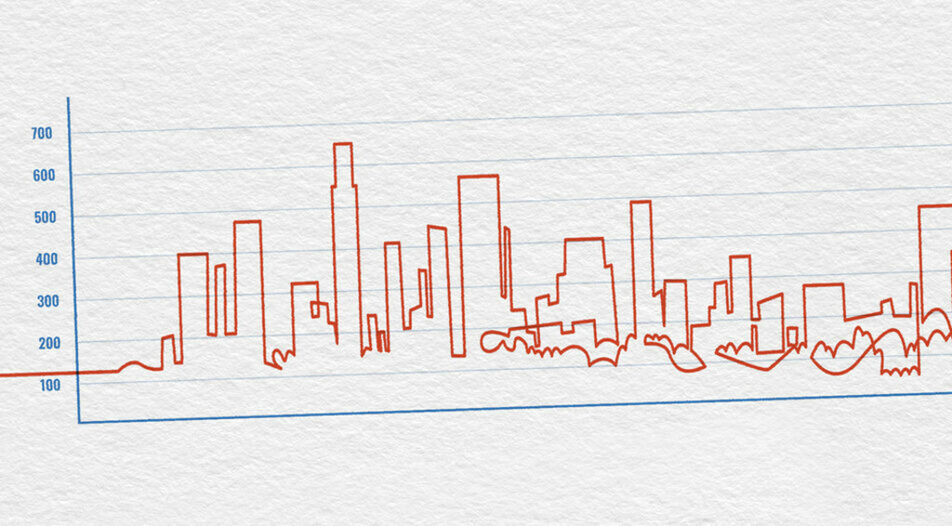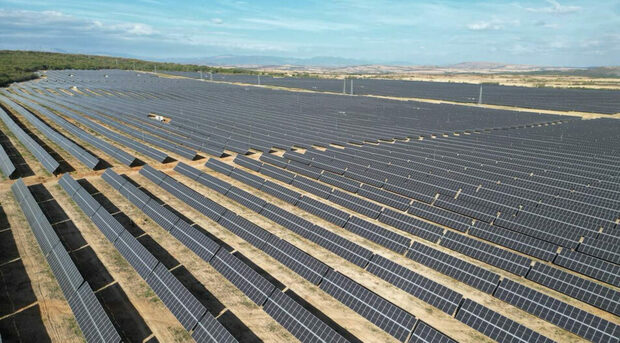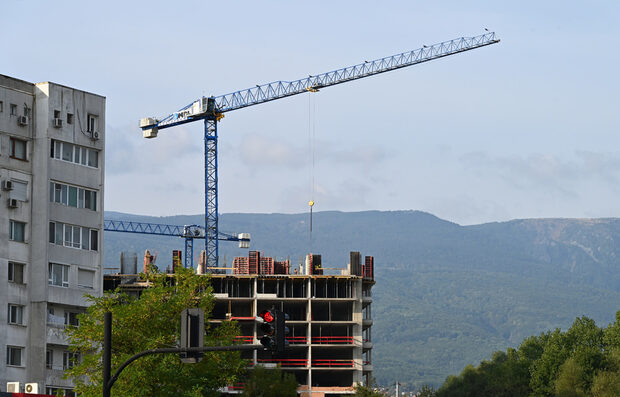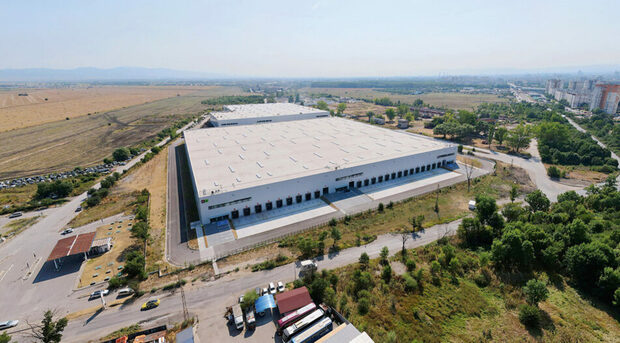- After peaking in 2021-2022, transactions and construction permits are now declining, and price growth is slowing down
- Housing prices in many Sofia neighborhoods are already overheating, but as long as incomes continue to rise and mortgage loans remain affordable, they are unlikely to fall.
- New construction is currently extensive, but a cooling trend is emerging, which will also support prices
Real estate brokers often speak in their own, somewhat cryptic language. Perhaps the most intriguing linguistic peculiarity is that they only use words like decline or bubble in a distant past tense. History teaches us that sooner or later, a moment of cooling off arrives, and sometimes even downturns occur. It is unlikely that industry representatives will sound the alarm for this, so it's usually a good idea to look at various other direct or indirect indicators that can hint at the direction the market is taking. Currently, the real estate market in Bulgaria seems to be facing such a complex-to-predict evolution.
For the fifth consecutive quarter, transactions have decreased on an annual comparison basis during July-September of 2023, reaching their lowest level since 2010. New housing construction projects have been shrinking for two quarters in a row. Price growth, measured by national statistical indexes, is also slowing down, even though Bulgaria's growth of 10.7% for the second quarter is the second highest in the EU. "We are now talking about a recession in the real estate market. For comparison, in the economy, this happens with a decline in GDP for only two consecutive quarters," says personal finance consultant Stoyne Vasilev, who is also the founder of the SmartMoney.bg website.
Balancing Opinions
However, in the real estate sector, no one is talking about a recession. "In general, we observe a well-balanced market that is returning to its long-term growth rates," says Miroslav Vladimirov, a member of the board of directors of real estate agency ERA Bulgaria and a lecturer at the University of Economics in Varna.
Agencies emphasize that transactions are decreasing, but this is in comparison to the peak of 2021 and 2022 when both the number and prices of properties sold in the country reached historic highs. Despite the decline, Sofia, Plovdiv, Varna, and Burgas saw more transactions in the third quarter of 2023 than during the same period in the pre-pandemic 2019. Additionally, data from the Registry Agency does not account for transactions related to new construction. According to Polina Stoykova, executive director of Bulgarian Properties agency, new construction transactions currently dominate in major cities. The cooling of construction activity is seen as healthy due to concerns that a bubble was forming in this sector.
Furthermore, the largest housing market in the country, Sofia, is performing good in the overall context. With a 13% decline in transactions nationwide in the third quarter, Sofia's decline is only 5.4%. With 33% fewer construction permits for housing in the country, Sofia's contraction is 24%. And with a 10.7% price increase for properties nationwide in the second quarter , Sofia's increase is 8.8%.
Expectations for 2024 sound more like wishes from a Christmas card. "Historically low interest rates will gradually rise. Incomes and savings will grow, and mortgage lending will remain affordable. The awakened inflation will also calm down, which has its advantages. After nearly five years of increasing transaction volumes, it's time for a change in direction, as the market shows some signs of fatigue," says Gergana Tenekedjieva, CEO of Adres real estate agency.
Cold winds from Europe
"Bulgaria is diverging from the general European trend of cooling in the housing market," UniCredit Bulbank says in an analysis of the sector. In the second quarter of 2023, the EU saw its first decline in housing prices since 2010, primarily coming from the markets of ten countries led by Germany. Construction activity is decreasing, there is a shortage of new housing amid an influx of people, and affordability is a significant problem. "We are far from those crises that are starting to turn dramatic. The Bulgarian real estate market is a unique oasis. And if we have concerns about it, they are related to the recession in Europe (with its impact on the Bulgarian economy)," says Dobromir Ganev, chairman of the National Real Estate Association and manager of Foros real estate agency.
However, considering Bulgaria an island of tranquility can be deceptive, and storms on the horizon often hit suddenly. Many remember that even in 2008, the tremors in the USA were initially seen as something transoceanic and distant, which couldn't possibly affect Bulgaria. There are no indications of a catastrophe of similar magnitude now, but a closer look at the data for the Bulgarian housing market reveals dangerous undercurrents. There are also internal factors capable of catalyzing accumulated tensions and reversing the long-lasting upward cycle: the expected increase in interest rates on loans and deposits, the adoption of the euro now scheduled for 2025, and a potential hike in property taxes.
The euro is coming
"I would not expect a significant impact on housing prices in Bulgaria from the country's adoption of the euro," says Daniel Gross, Director of the Institute of European Policy founded by Bocconi University. According to him, the key will be mortgage pricing, and exchange rates in Bulgaria are already aligned with the eurozone. "Even if membership coincides with a period when the market cycle in the country turns, prices are unlikely to collapse. Rather, they may stop rising, at least for private housing," he says.
Daniel Gross also notes that the impact of adopting the euro on housing prices has been very different in the new EU member states due to their different economic circumstances, making it difficult to draw analogies.
Locally, many do not expect the adoption of the euro to have a significant impact on property prices. "Properties have long been priced in euros, and the adoption will not directly change anything," comment Postbank's representatives. They emphasize on the potential indirect benefits: accelerated business development, investments and economic growth leading to higher incomes and Western European standards of living."Personally, I do not expect significant changes in the housing market just because of the adoption of the euro," says Polina Stoykova of Bulgarian Properties.
Growth expectations
Other analysts expect modest growth for a certain period after accession to the eurozone. "With our official adoption, there will be growth, albeit small," says personal finance consultant Stoyne Vasilev.
Tihomir Toshev, a credit consultant and manager at Credit Center, explains that in most countries, housing prices have increased in the first few years after the adoption of the euro. However, during the same period, the income of the population in these countries has grown at a faster pace. It's also important to consider the market cycle at the time of accession, Toshev said. His personal opinion is that after Bulgaria joins the eurozone, property prices are more likely to rise, but gradually, and the market will remain stable.
"The impact of Bulgaria's entry into the eurozone is much more predictable, as we know what happened in Croatia. There, property prices rose sharply, as the change of currency facilitated the inflow of capital, and foreign investments "exploded".' This led to a significant increase in prices (demand-driven), without an increase in local salaries," says Pavel Morrison de la Bassettiere, an economist at the Blue Europe think-tank. "Given Bulgaria's geographical distance from the rest of the EU, this trend will be less pronounced than in Croatia," he opines.
A similar thesis is developed by Sotheby's International Realty Bulgaria in a report for the Sofia Investment Agency. They expect property prices in the country to rise due to eurozone membership and even claim that if new construction properties in very attractive locations are purchased now, they can be sold at a profit of 20-40% after two to three years. Their forecast is based on several assumptions: increased interest from foreign investors due to these events, optimism that banks will maintain their current levels of lending, and market stability over the next 18-24 months.
"I do not expect a significant influx of foreign investors into Bulgaria," explains Georgi Pavlov, CEO of Realto Group. Rather, he expects interest in buying properties to surge locally just before the introduction of the euro. He speculates that people with substantial cash reserves (in the range of 0.5-1 million levs or 0.2 - 0.5 million euro) may not feel comfortable to exchange them for euros in banks (probably due to their unreported origin) and will prefer to invest them in real estate instead.
Where the deals disappear
The most palpable sign of cooling in the market now is the decline in transactions, which can have various explanations. But the most logical one is that demand is subsiding due to high prices. "The main reason for the decline in property sales is the increase in their prices over the past few years. Now, property prices in the ten largest cities in the country have reached levels that make them unaffordable for a significant portion of potential buyers. In addition, high inflation and regional uncertainty also play a role," says Credit Center's Tihomir Toshev.
The lack of supply is also a factor, including the lack of completed newly built properties and an insufficient number of properties on the secondary market.
.
Taxes can change the market
"If anyone can stir the housing market, it is the local governments. If property taxes are significantly increased to levels seen in normal countries, it will bring many properties to the market," says Realto Group's Georgi Pavlov. Property taxes in Bulgaria are considered low and have not been updated for years. However, raising them will be an unpopular measure, one that local authorities only dare to discuss at the beginning of their term.
The middle-aged buyer
"The main driver of the real estate market now is people striving for a better quality of life," says Yavor Perduhov, manager at Forton Homes. Buyers aged between 40 and 50 with good professions or their own businesses and monthly household incomes above 5,000 levs, are looking for larger apartments in better neighborhoods, houses in big cities or close to them, according to Tihomir Toshev from Credit Centre. He defines them as "the stable middle class in the country, which has managed to accumulate significant savings. They want to withdraw their savings from banks because they lose their value with zero interest rates on deposits. In some cases, they use mortgage loans."
The size of this middle class can be indirectly inferred from UniCredit Bulbank's analysis. According to it, in 2022, housing in the country as a whole was affordable for one-third of households. Specifically in Sofia, however, this share is less than 10% of households with the highest incomes. The bank measures affordability by the ability of a household to buy an average-sized property if it saves its entire gross income for up to six years.
The current lack of income is compensated by some of the cheapest mortgage loans in Europe - at historically low interest rates of 2.1-2.8%. In Sofia, the share of mortgage transactions has risen in the last quarter to 60.7% of all deals. High prices are leading people to take out larger bank loans. United Bulgarian Bank (UBB) says that the average loan size has been growing by over 10% annually and is now consistently above 200,000 levs. The average loan term with them is now over 20 years, and at DSK Bank, it's 25 years.
Real estate agencies argue that despite the decline in demand since the beginning of 2023, there is a good balance with supply, meaning it does not imply significant price corrections. If a few years ago a seller would have three or four buyers, today it has one, representatives of several real estate companies told Capital Weekly.
Will interest rates affect the market?
Expectations of change are primarily related to a potential increase in interest rates. Rising mortgage costs combined with current high housing prices would deter even more buyers relying on loans. Increasing deposit interest rates, combined with decreasing inflation, would encourage people with savings to leave them in banks rather than invest them in real estate. In other words, demand would contract further, which could put pressure on prices.
"If there is a significant increase in loan interest rates, there may be some downward correction in property prices. The effect would be more pronounced in less attractive locations and properties," say UBB representatives.
"The conclusion is that, besides a decline in the number of transactions, which is already observed, a decline in prices can also be expected. With current trends, I personally expect a downward correction of up to 10-15% over the next two to three years," comments Stoyan Shalamanov, an economist and lecturer at the Faculty of Economics at Sofia University St. Kliment Ohridski."The decline will not be as significant as during the Great Recession in 2009 because general inflation is not as high now, and there is no price bubble. Additionally, the rising cost of construction materials, labor, and other resources does not create conditions for a deep price decline", he adds. The prevailing expectation in the real estate sector now is that perhaps in 2024, bank interest rates will rise by nearly 0.5 percentage points, which will not significantly affect the housing market.
- After peaking in 2021-2022, transactions and construction permits are now declining, and price growth is slowing down
- Housing prices in many Sofia neighborhoods are already overheating, but as long as incomes continue to rise and mortgage loans remain affordable, they are unlikely to fall.
- New construction is currently extensive, but a cooling trend is emerging, which will also support prices
Real estate brokers often speak in their own, somewhat cryptic language. Perhaps the most intriguing linguistic peculiarity is that they only use words like decline or bubble in a distant past tense. History teaches us that sooner or later, a moment of cooling off arrives, and sometimes even downturns occur. It is unlikely that industry representatives will sound the alarm for this, so it's usually a good idea to look at various other direct or indirect indicators that can hint at the direction the market is taking. Currently, the real estate market in Bulgaria seems to be facing such a complex-to-predict evolution.












